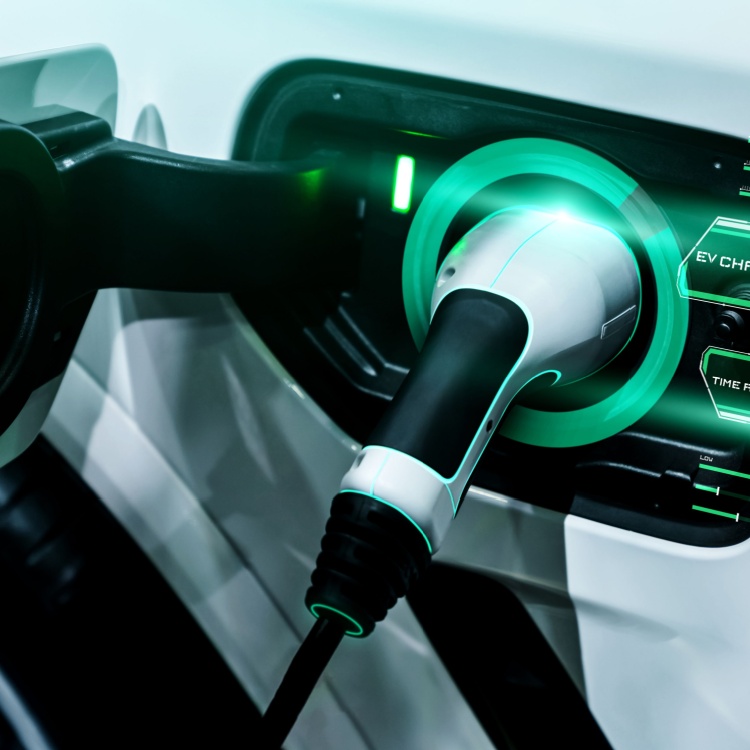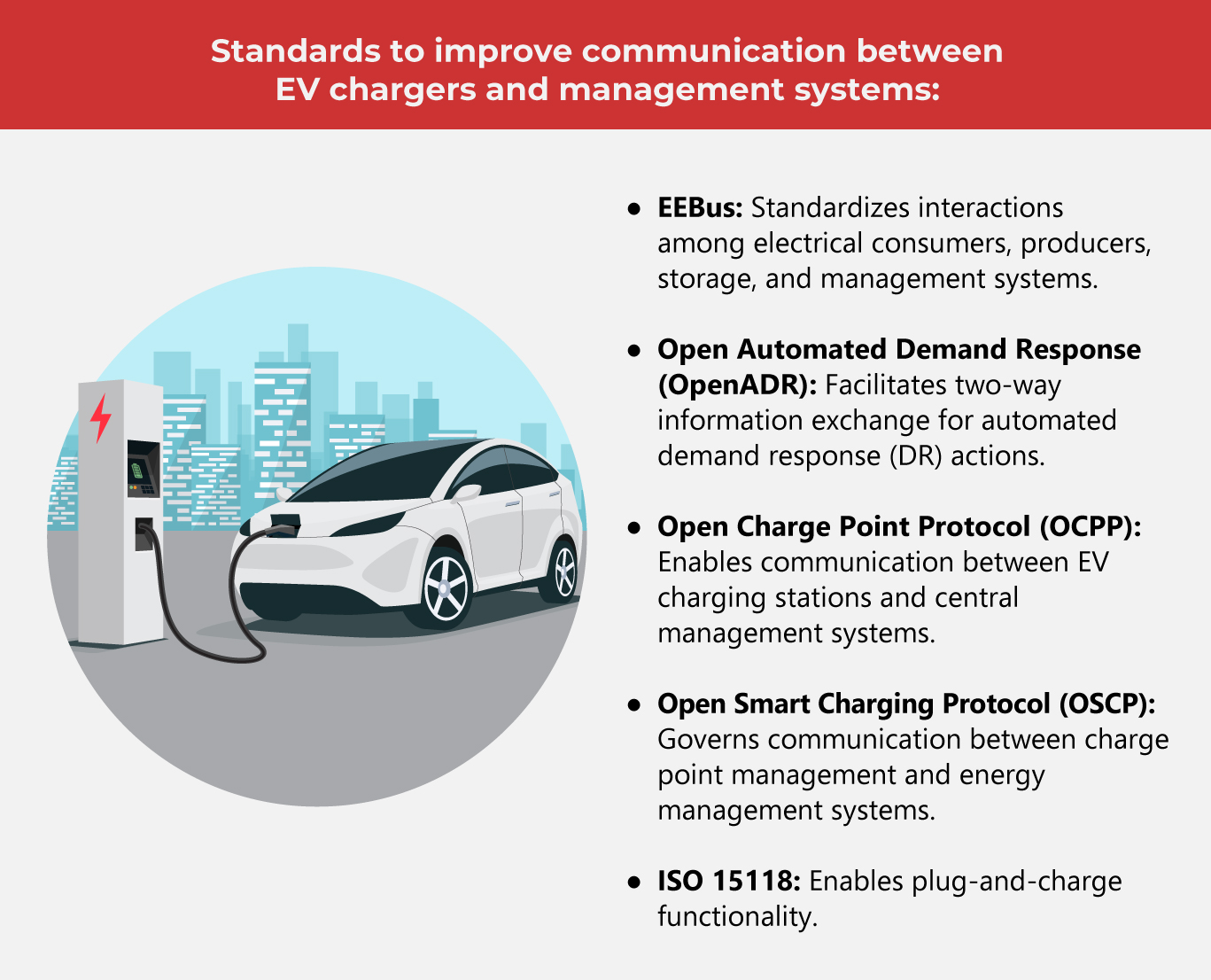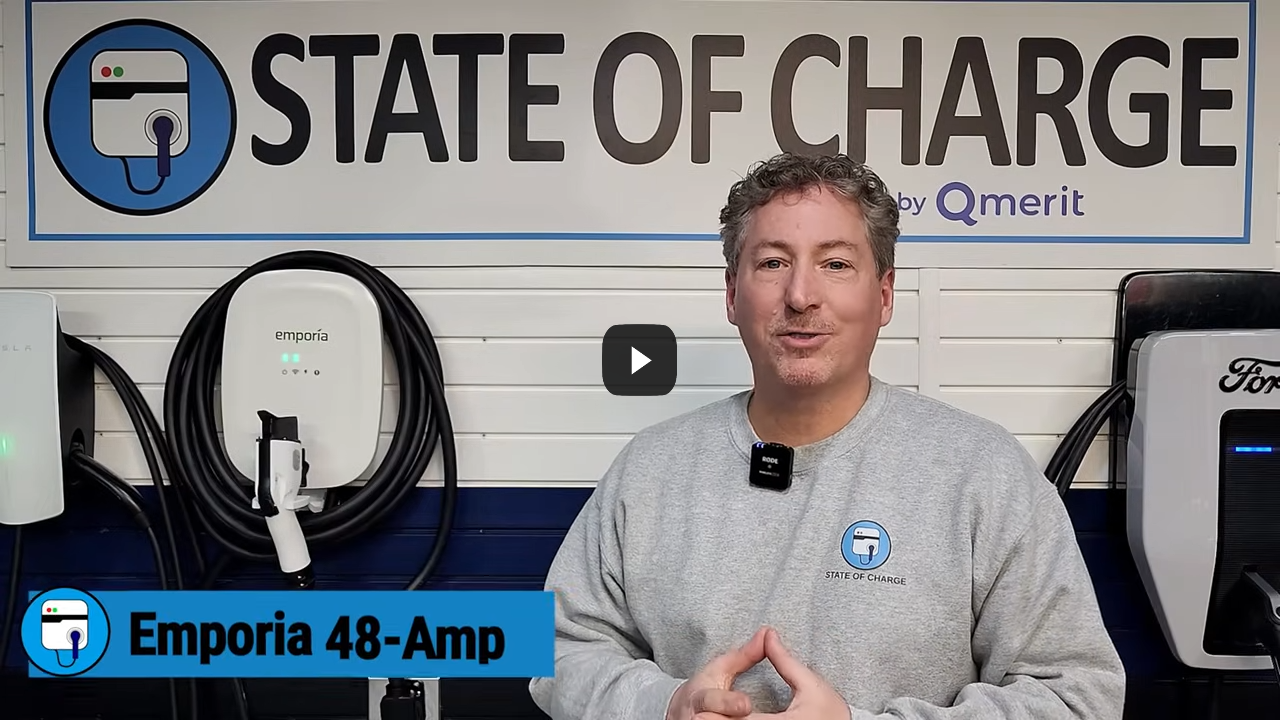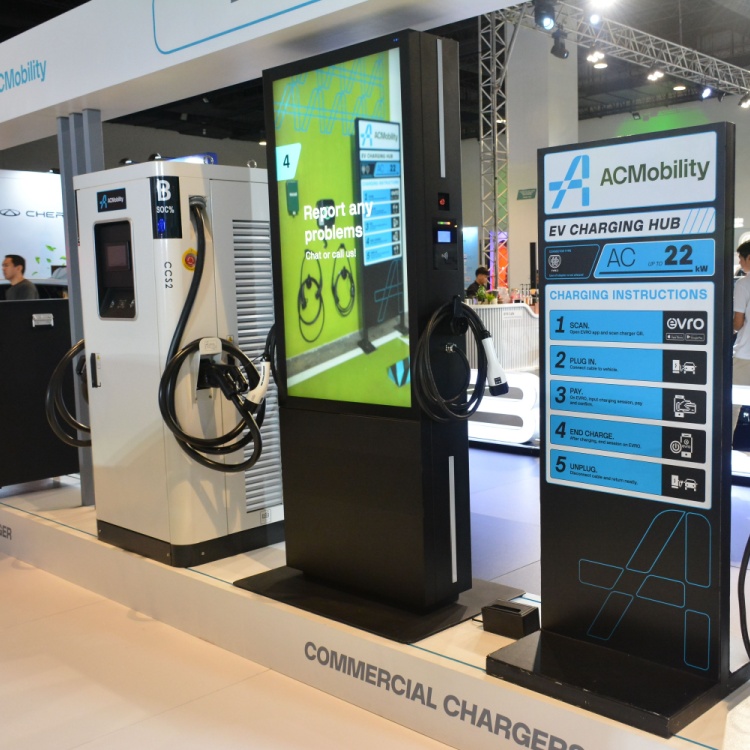8 Benefits of Using Smart EV Chargers

Smart chargers have transformed battery charging by offering quicker, more secure, and optimized experiences by facilitating close interaction between the electric vehicle (EV), charger, and control system. With this technology, users can adjust to grid demand, energy costs, and travel requirements.
Smart chargers and EV manufacturing are closely linked, enhancing operational efficiency and sustainability. Smart chargers optimize power usage based on demand and vehicle needs, improving energy management. As EV production increases, these charging solutions are vital for maximizing the technology’s benefits.
Many governments mandate that charging stations include smart charging features to qualify for subsidies. In Germany, the KfW subsidy 442 offers a flat €600 for standard chargers, while bi-directional chargers receive €1,200. In the UK, all government-funded electric vehicle charge points have been required to be smart since 2019, enabling remote access and response to signals. The Electric Vehicles (Smart Charge Points) Regulations 2021 further extended this requirement to residential and workplace charge points, ensuring they can charge vehicles during low grid demand or when more renewable energy is accessible.
What is a smart charger?
A smart charger is an advanced device designed to enhance the charging process for various battery types. Unlike traditional chargers that provide a constant charge, smart chargers use advanced programming and technology to offer a more effective and customized experience. In the context of the electric automotive market, a smart home EV charger involves communication between the electric car, the smart charger, and the electricity grid, typically facilitated through a Wi-Fi signal or mobile internet connection.
Smart chargers have the following features:
-
Microprocessor supervision
Smart chargers feature microprocessors that constantly track and modify the charging cycle based on real-time data. This capability ensures the accurate control and improvement of charging settings.
-
Various Charging Options
Smart chargers frequently provide different charging settings, including fast and maintenance charging. Each option is designed for a specific function. For instance, fast charging delivers a high current to charge the battery quickly, which is ideal when time is limited. Meanwhile, maintenance mode keeps the battery at full charge without overcharging, ensuring optimal battery health.
-
Digital display
A digital or LED display helps users monitor the charging process, battery voltage level, electrical current, and other important information. Users can better care for the battery and prolong its life.
-
Boosted safety
Smart chargers focus on safety by including protections such as reverse polarity, short circuit prevention, and heat regulation. These safeguards help protect the battery and lower the chances of mishaps during charging.
Benefits of using smart chargers for your EV
Smart chargers for electric vehicles provide an innovative solution that integrates advanced technology into the charging process, offering these advantages:
-
Ease and convenience
Avoid the inconvenience of long waits at public charging stations or tangled wires. With a smart EV charger at home, you can charge your vehicle at your convenience. Simply schedule charging times, and once plugged in, your EV will automatically start charging—making the process seamless and effortless with minimal effort required.
-
Quicker charging
Smart chargers evaluate the battery’s condition and adjust power levels, enabling faster charging than standard chargers. Using advanced software and digital controls, they optimize charging while extending battery life. Home EV chargers typically provide 7kW of power, offering charging speeds up to three times faster than the 2kW output of standard three-pin plug chargers.
-
Longer battery life
Overcharging can harm batteries and shorten their lifespan. Smart chargers are equipped with integrated sensors and protocols that track the battery's energy level, halting the charging process once it reaches its ideal capacity. This functionality safeguards the battery from overcharging, promoting its durability and longevity.
-
Adaptability
Various battery types, including lithium-ion and lead-acid, can power up using smart chargers. Advanced manufacturing and engineering processes enable smart chargers to identify the specific battery type and modify the charging settings accordingly. This guarantees safe and efficient charging for each type of battery chemistry.
-
Performance maintenance
Regular use of public EV chargers that employ rapid and ultra-rapid rates can lead to battery damage and accelerate degradation. By acquiring a smart EV charger for home use, EV users don’t have to use public stations that dictate kilowatt ratings. Many smart chargers also include maintenance and reconditioning modes, which can rejuvenate underperforming batteries by employing specialized charging methods to enhance battery capacity and overall functionality.
-
More savings
Smart chargers feature a charge scheduling option that allows you to set specific times for charging your EV. By scheduling your vehicle to charge during off-peak hours, typically from 11 PM to 5:30 AM, you can take advantage of lower electricity demand and significantly reduced energy prices, leading to substantial savings.
-
Safety
Certain chargers offer enhanced protection and safety elements, allowing you to secure your EV charging cable in place. Additionally, some EV chargers include a load balancing mechanism for increased safety. When operating several household appliances at the same time, there is a risk of overloading your circuit, particularly when charging a vehicle. The load balancing mechanism helps prevent circuit overloads by evenly distributing electrical demand.
-
Sustainable charging
EV chargers can enhance sustainability through innovative product design and development. By using eco-friendly materials and energy-efficient technologies, manufacturers can reduce environmental impact. Integrating smart features, such as energy management systems and renewable energy sourcing, allows chargers to optimize energy use by harnessing power from renewable sources. This approach supports the growth of electric motorcycles, cars and other vehicles to promote a greener future for transportation. In conclusion, smart EV chargers represent a sound investment due to their significant economic value and growing demand in the market. As automotive parts suppliers increasingly pivot towards sustainable technologies, smart chargers play a crucial role in global manufacturing efforts to meet the needs of the electric vehicle industry. By integrating advanced features and promoting efficient charging, these chargers not only enhance user experience but also contribute to a more sustainable future.
In conclusion, smart EV chargers represent a sound investment due to their significant economic value and growing demand in the market. As automotive parts suppliers increasingly pivot towards sustainable technologies, smart chargers play a crucial role in global manufacturing efforts to meet the needs of the electric vehicle industry. By integrating advanced features and promoting efficient charging, these chargers not only enhance user experience but also contribute to a more sustainable future. As one of the Top 20 EMS companies in the world, IMI has over 40 years of experience in providing electronics manufacturing and technology solutions.
As one of the Top 20 EMS companies in the world, IMI has over 40 years of experience in providing electronics manufacturing and technology solutions.
We are ready to support your business on a global scale.
Our proven technical expertise, worldwide reach, and vast experience in high-growth and emerging markets make us the ideal global manufacturing solutions partner.
Let's work together to build our future today.
Other Blog



